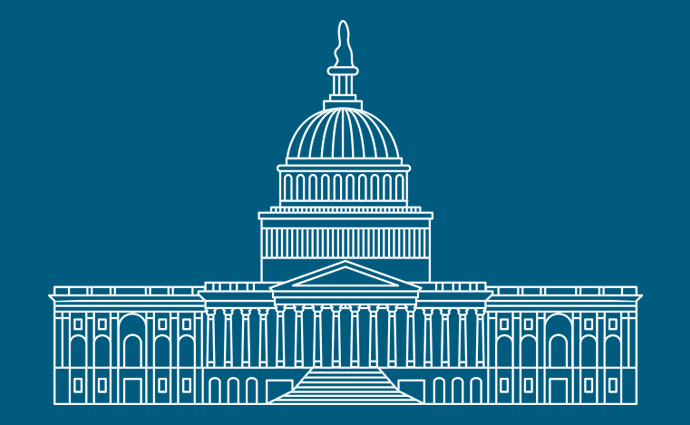Lawmakers Propose Changes to MACRA to Boost ACO, APM Participation
The Value in Health Care Act aims to increase APM participation by extending incentives and correcting arbitrary qualification standards under MACRA and the Medicare Shared Savings Program.

Source: Getty Images
- A bipartisan bill introduced late last week aims to increase alternative payment model (APM) participation by making “commonsense changes” to the Medicare Access and CHIP Reauthorization Act (MACRA) of 2015.
Specifically, the Value in Health Care Act seeks amendments to many program parameters of Medicare’s APMs, including MACRA’s Advanced APM pathway and the Medicare Shared Savings Program (MSSP). Among the changes would be a six-year extension of the 5 percent incentive payment for Advanced APM participants and lower thresholds for Advanced APM participation from 75 percent to 50 percent of Medicare patients in performance year 2021.
HHS would also be able to increase the threshold by no more than 5 percent each performance year under the bill.
The bill also intends to increase accountable care organization (ACO) participation in the MSSP by increasing shared savings rates for shared savings-only ACOs. The levels would be at least 50 percent for ACOs in Levels A and B of the BASIC track and 55 percent for those in Levels C and D.
The shared savings rate would be at least 60 percent for ACOs in Level E.
READ MORE: 36% of Payments Tied to Alternative Payment Models in 2018
Also, the bill would modify risk adjustment to allow for a greater score increase and adjust benchmarking to remove ACO beneficiaries from the regional reference population under regional benchmarking.
Additionally, the bill would eliminate the high-low revenue distinction implemented during an overhaul of the MSSP in 2018. If passed, all ACOs in the program would be subject to low revenue policies, according to the legislation.
The changes would incent participation in the models, while accelerating the transition to value-based care, Representatives Suzan DelBene (D-WA), Peter Welch (D-VT), and Darin LaHood (R-IL) said.
“Physicians and hospitals participating in APMs are driving the change in health care we so desperately need. The Value in Health Care Act makes sensible modifications to the existing APM parameters and encourages more providers to participate. This ultimately helps seniors by improving the quality of care and outcomes,” Delbene said in a statement.
“By incentivizing the use of these value-based health programs that support coordinated care between doctors, hospitals, and other health care providers, this legislation will improve health care access and the quality of care for our seniors, which is critical now in our fight against COVID-19,” added LaHood.
READ MORE: Entering the Next Phase of Value-Based Care, Payment Reform
Signed into law in 2015, MACRA established a value-based reimbursement system for Medicare providers. The law created the Quality Payment Program, which includes the Merit-Based Incentive Payment System (MIPS) and the Advanced APM pathway.
While most Medicare providers participate in the Quality Payment Program via MIPS, policymakers intend for the program to ramp up participation in APMs through the Advanced APM pathway.
Participation in the Advanced APM pathway nearly doubled from 99,076 clinicians in 2017 to 183,306 clinicians in 2018, CMS recently reported using the most recent year for which the agency had complete participation data.
That same year, 874,515 clinicians participated in MIPS.
Healthcare industry stakeholders have been calling for MACRA reform to make the Quality Payment Program more effective.
READ MORE: 4 Key Strategies for Accountable Care Organization Success
Last year, providers testified at a Senate Committee on Finance hearing about the program’s complexities. Providers and other industry leaders recommended greater incentive payments for Advanced APM participation, as well as lower participation thresholds.
Industry groups have also raised concerns about ACO participation in the MSSP.
As of January 1, 2020, there were 517 ACOs in the program, up from 487 the previous year. The 2020 class included 53 new ACOs, CMS highlighted in a blog post earlier this year.
However, the number of new ACOs joining the program was overstated, according to the National Association of ACOs (NAACOS). Its own analysis of MSSP participation found that only 35 were truly new to the program, and that is a disappointing level considering the previous program average of 100 new ACOs a year prior to the program’s overhaul.
Changes proposed in the Value in Health Care Act could help to increase participation in Advanced APMs and the MSSP, especially as providers respond to the COVID-19 pandemic, the industry group said.
“This bill addresses several critical issues that will reignite ACO growth by correcting incentives and better rewarding Advanced APM participation,” Clif Gaus, ScD, NAACOS president and CEO, said in a statement.
The group also signed on to a letter supporting the bill from a coalition of thirteen organizations representing providers, including the American Medical Association (AMA), American Hospital Association (AHA), and American College of Physicians (ACP).
“The policies in this bipartisan bill are more important than ever given the acute needs of our nation’s health care system as we navigate the COVID-19 pandemic,” the groups wrote. “The reforms in this legislation will further strengthen ACOs and APMs and ensure their continued success.”
To read the full bill, click here.
